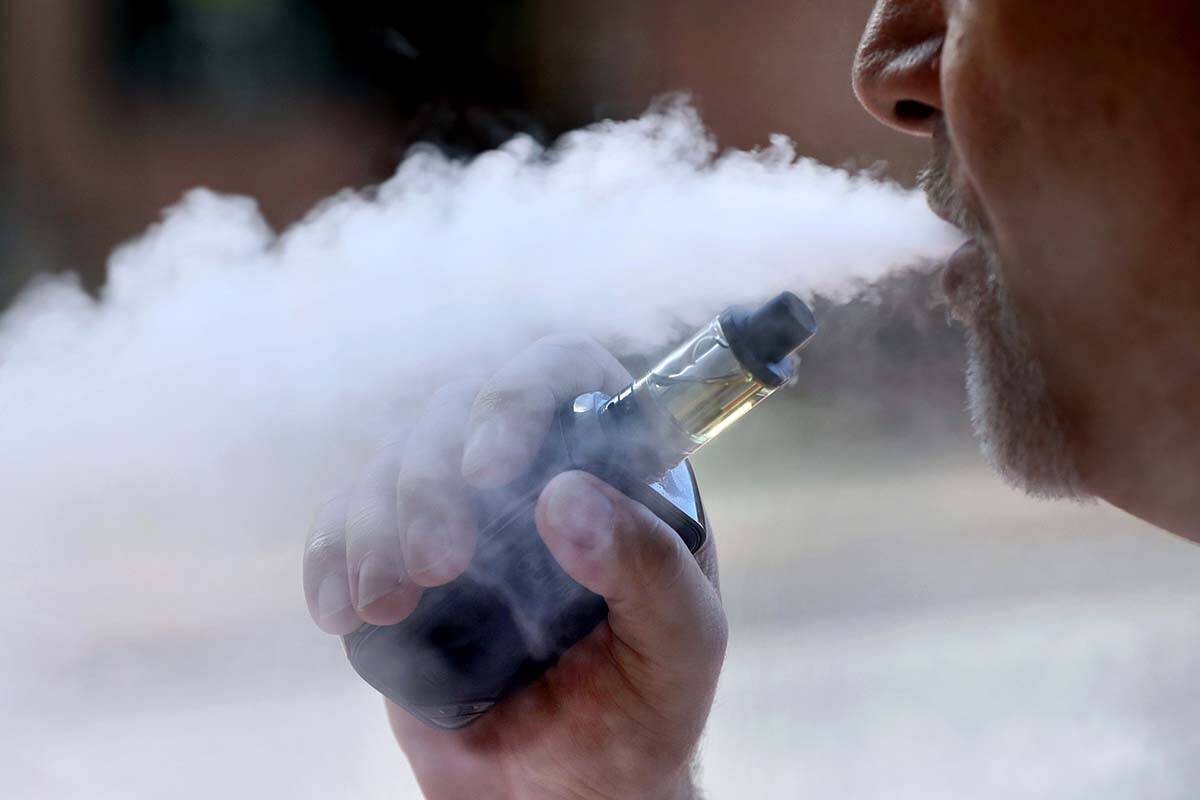COMMENTARY: Teen vape fad sputtering despite government’s best efforts
Amid another year of government-funded insistence that teen recreational vaping is some raging doomsday epidemic (along with suspiciously relentless efforts to shaft the e-cigarette industry with a bizarro fixation on shutting it down bit by bit — see the ban on flavored vapes) comes this New York Times piece, buried recently in the Health section:
“Teenage E-Cigarette Use Drops to a 10-Year Low”
The Times will undoubtedly try to take credit. Still, this happy news comes despite the government’s freakout campaign — the nonsensical one resembling similar useless efforts of years past, such as DARE and Just Say No to discourage youth experimentation. These campaigns are not demonstrably ineffective; studies show they actually increase ideation/experimentation among teens.
So if it’s not government nannying that’s causing teens to skip the vape, what is it? I’ll get to it. It’s simple. But first, a little story:
I chain-smoked cigarettes for many years and struggled mightily to quit until I finally managed to about 15 years ago. My life changed dramatically for the better once I kicked the habit, and I want smokers to know they can live cigarette-free. Hence my interest.
When I first started trying, there were few options in terms of cessation aids. I made many cold turkey attempts. It was excruciating, and it never took. Someone once told me that they knew a guy who had managed to quit by chopping carrots into cigarette-size strips, carrying them around, and “smoking” them by slowly nibbling them down when the urge hit. That one was going pretty well for me until my skin turned orange after about 10 days. Back to the Marlboros.
Eventually, Nicorette gum and the patch came along and I tried them to no avail. Then came Chantix. Wonder pill. Despite turning me into a basket case for the 12 weeks’ treatment, it worked. I haven’t puffed on a combustible cigarette since. Chantix wasn’t for everyone — as I recall, the success rate is around 65 percent, and the pills can mess up your head for a bit.
Then comes the e-cigarette — a breakthrough that allowed for a smooth, comfortable transition off combustibles and was said to be nothing short of a miracle, which has proved true. They were never made nor marketed to be used recreationally, just as Chantix, Nicorette, et al. were not. But teens started picking them up.
So the government, ever-hostile toward the industry and the great promise of the e-cigarette to alter the health of a nation, decided to turn the industry into great villains using an old trick. A massive ad campaign based on fear and falsehoods. The one you’re paying for.
Meanwhile, vaping companies can’t defend themselves nor set the record straight about their products in the United States. The FDA forbids vape companies from telling their customers what the agency explicitly acknowledges — that vaping is vastly safer than cigarettes and helps Americans quit smoking better than any other method. Retailers can’t put up signs in their stores quoting FDA’s statements. The industry is so muzzled that one trade association is preparing a federal lawsuit against the FDA on First Amendment/commercial speech grounds.
It’s a punch that needs to be thrown.
I promised to tell my theory about why teens are bailing on vapes. I started smoking in middle school, and it was pretty much for the same reasons my peers did. I thought it made me cool-looking. I had no idea it would turn into a massive headache for the better half of my life. The government was then getting into smoking-danger hysteria over youth experimentation, which made me like it more.
Smoking cigarettes did look cool. And the more the government wailed, the more we were up for it. But vapes aren’t cool-looking. Vapes are medical devices. It’s akin to walking around sucking on an inhaler but not having asthma. Plus, they’re expensive and can be a pain to get. Teens are figuring out that if vapes aren’t cool and not all that much fun, there’s not much point.
Some wins come naturally. As such, de-funding these behemoth government nanny campaigns is right up there with helping smokers safely and comfortably kick the habit in the hierarchy of important things.
Christian Josi is the founder and managing director of C. Josi &Co., a public affairs consultancy. He wrote this for InsideSources.com.






















